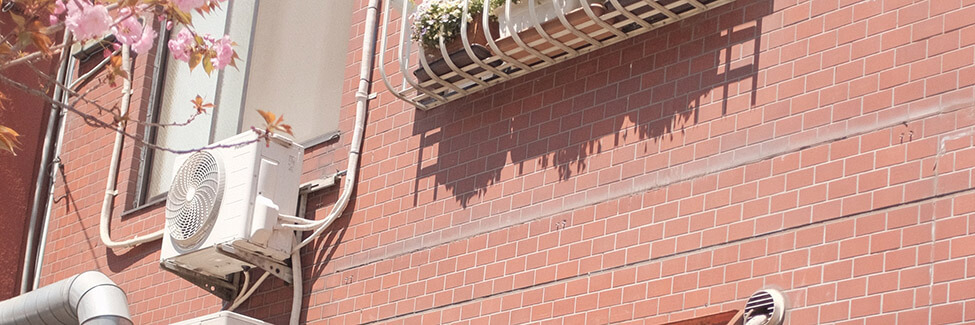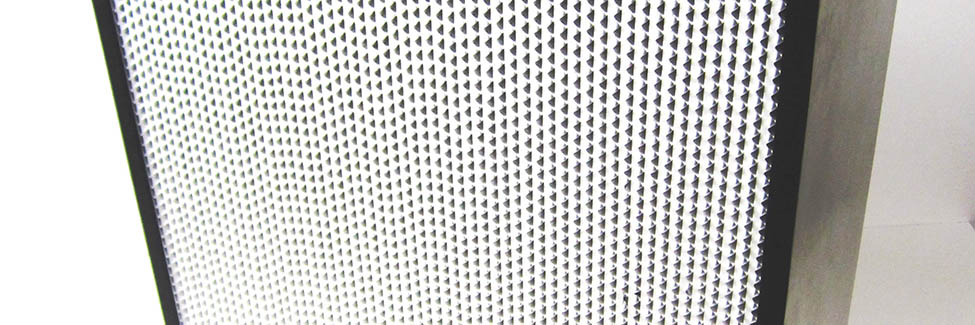
How Long Do Honeywell Air Filters Last?
An air filter is one of the most important parts of your HVAC system, though it’s often overlooked. Unfortunately, dirty or worn out filters degrade indoor air quality and decrease the efficiency of heating and cooling systems. In some cases, they can even end up damaging your air conditioning system.
Honeywell is a popular manufacturer of air filters, manufacturing air filters for both HVAC and air purifier systems. You can buy directly from the company, or you can find Honeywell filters from manufacturers online. The life expectancy of a Honeywell air filter depends on the materials used as well as household needs and overall usage.
Ultimately, filters may need to be changed anywhere from every month to every 6 months. That said, some Honeywell air purifiers use a Filter Check/Reset indicator that lets you know when it’s time to change your air filter.
Before discussing different types of filters, let’s review MERV ratings and why they’re so important to indoor air quality.
What is a MERV Rating for Air Filters
When air travels through an HVAC system, the air filter cleans that air by trapping particles of dust, microorganisms, and various other particulates. The MERV rating of an air filter is a measure of how well it filters and removes particles from the air.
MERV stands for Minimum Efficiency Reporting Value. Filters with MERV ratings of 16 or below are used in homes, offices, and even hospitals. MERV ratings of 17 or above are generally used in filters for operating rooms or factories that produce medical equipment. For context, HEPA filters are generally designed to have a MERV rating of at least 13.
Put simply, the higher the MERV rating, the better a filter can trap particles.
MERV Filter Ratings and Efficiency
Higher MERV ratings might seem like the way to go, but a higher MERV rating is actually not always better for every system. That’s why you’ll want to always use the kind of filter that your HVAC manufacturer recommends.
High-rated filters have small pores that create resistance to airflow. A filter used in the wrong type of system can lower efficiency and make the unit work harder than it’s designed to.
Generally, newer and more efficient HVAC systems will use filters with higher MERV ratings, though it’s wise to consult your unit’s manual to see what the ideal MERV rating is for your specific unit. High-quality filters can prevent illness and alleviate allergy symptoms when used correctly.
Different Types of Air Filters
There are several different types of air filters offered by Honeywell, though higher quality filters don’t need to be replaced as often.
Fiberglass Filters
Fiberglass air filters are often very economical, and they’re useful in trapping larger particles and debris in the air. They’re unlikely to put a strain to your air conditioning system, but they’re also not quite as good as other materials at capturing smaller particles.
Before purchasing a fiberglass air filter, you should note that the recommended replacement cycle is every month. The money you save in the short run might not be worth it in the long run.
Pleated Filters
Pleated air filters are a bit more expensive than fiberglass and are usually made of cotton or polyester. They collect many different particles (including mold spores), which makes them good all-around filters for healthy indoor spaces. Pleated filters also remove pet dander from the air, which is a must for people with pet allergies.
Pleated air filters generally have a MERV rating of 5 or 6 and should be replaced about every 90 days.
HEPA Filters
High-efficiency particulate air (HEPA) filters are among the best filters. They’re the grade of filters used in airplanes and cars. HEPA filters are capable of removing 99.97% of particles that are 0.3 microns (0.000012 inches) or larger. They can capture extremely small particles and are an excellent option for people who have sensitive allergies or are immunocompromised. HEPA filters should be replaced every 6 to 12 months, depending on how much you use your HVAC system.
UV Filters
A UV filter uses light to clean bacteria and other debris from an HVAC system. A UV filter doesn’t look anything like a traditional air conditioner filter, though it can be used in tandem with traditional filters. Rather, it’s a light that uses germicidal radiation and kills microorganisms in the air.
Using UV air filters results in very clean indoor air, protecting areas from dust, diseases, and dander. Although these filters are able to remove bacteria and viruses, they’re not able to trap dust or smoke from the air. That’s why pairing a UV filter with a HEPA filter is common. Honeywell offers its own set of UV light filters.
Washable Filters
For the eco-minded folks out there, washable filters can be a solid alternative to the aforementioned types of air filters. To clean a washable filter, you simply pop it out of your HVAC system, wash it, and return it. It’s important that they’re maintained well and washed regularly.
Washable filters can be expensive but are a good investment, especially for air purifiers. They can pay for themselves within a year or two, though they’re usually only rated 1-4 on the MERV scale. That means they’ll trap large particles but may not be the best option for high-usage areas or around people with allergies.
That said, washable filters are an excellent alternative to fiberglass filters because you won’t have to keep buying replacements, and washable pre-filters can extend the life of primary filters made of different materials.
Charcoal Filters
Charcoal filters collect dust like other filters but also trap odors and fumes. Charcoal is a powerful natural cleanser that is also used in beauty and cleaning products. It’s porous and absorbs particles from the air around it.
Charcoal filters last around three to six months, depending on HVAC usage.
Filter Factors
Ultimately, how often you change your air filter will depend on a few different factors aside from just the manufacturer recommendation. Consider adjusting your replacement time by asking a few questions like:
- How often do you use your HVAC system? If the building is in a cold area where the AC is used infrequently or is a vacation home, it may not need to be changed as often.
- Do you have a large household? A family of 5 is going to put more wear on an HVAC system than an an empty nester couple, meaning air filters may be used up sooner.
- What pets use this space? Dogs and cats can shed dander and bring in unwelcome surprises from outside, necessitating more frequent air filter changes.
- Does anyone regularly using this space have sensitive allergies or a compromised immune system? Some folks require higher quality air with more frequent air filter replacements.
When you change your filters regularly, you’re maintaining your HVAC system, making sure it’ll last a long time. The air in your home will be cleaner, and you’ll create a healthier indoor environment.
Still have questions? Ask an HVAC expert directly via chat or phone.
Published on 2022-02-13 by Ben Travis
Last updated on 2022-02-13


